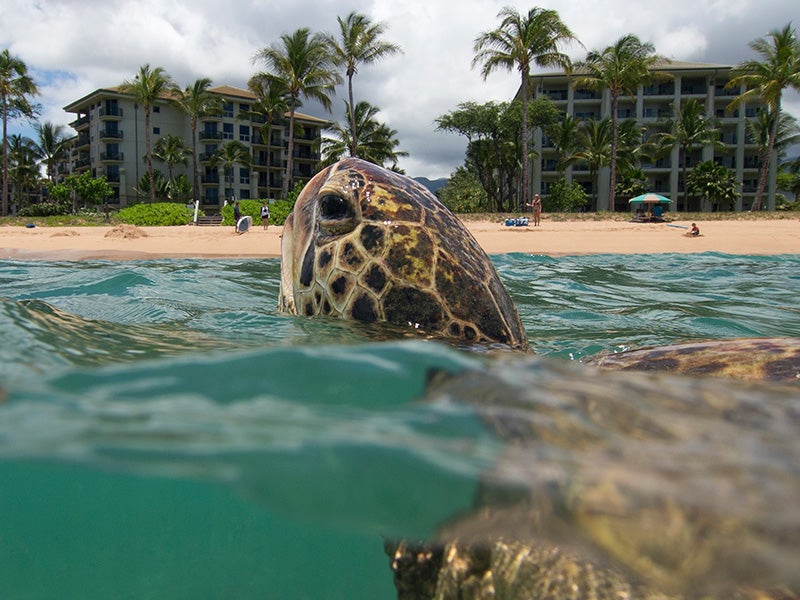In First Application of Supreme Court’s “Maui” Clean Water Act Test, Environmental Protection Prevails
Victory
—Hawai‘i federal court decides Maui County’s Lahaina facility requires Clean Water Act permit
Contact
Yesterday, the Hawai‘i federal district court ruled that Maui County is required to get a Clean Water Act permit for its injection wells at the Lahaina Wastewater Reclamation Facility in West Maui, which are polluting local reefs with treated sewage. The ruling culminates a nine-year legal battle by Earthjustice, on behalf of the Hawai‘i Wildlife Fund, Sierra Club – Maui Group, Surfrider Foundation, and West Maui Preservation Association, to stop degradation of the fragile marine environment.
The ruling holds national importance as the first instance in which a court has applied the Supreme Court’s test for when pollutant discharges that reach surface waters via groundwater require a Clean Water Act permit, which the Supreme Court announced last year in an earlier phase of this case. Future legal battles over water contamination from pollution sources such as leaking pipelines, feedlot manure lagoons, and coal ash ponds could be impacted by yesterday’s victory for clean water advocates in Hawai‘i Federal Court.
“Communities across this country are fighting to protect their rivers, lakes, and oceans from pollution via groundwater, from Hawai‘i to New York, and from Alabama to Montana. The Supreme Court held that polluters cannot evade the Clean Water Act by using groundwater as a sewer to convey pollution into our nation’s waters,” said David Henkin, senior attorney at Earthjustice who argued the case before the Supreme Court and the Hawai‘i district court. “As the first court to apply the Supreme Court’s test, the Hawai‘i federal court’s ruling is a victory for clean water, for justice, and for common sense.”
If Maui County does not appeal, settlement terms negotiated in 2015 will go into effect mandating that Maui County invest at least $2.5 million in infrastructure to reuse treated wastewater from the Lahaina facility for irrigation in arid West Maui. Maui County will also be required to obtain and comply with a Clean Water Act permit for the Lahaina facility, which will ensure that any continued use of the injection wells will not harm water quality or the local reefs, which are home to incredibly vibrant ocean life.
Since the 1980s, Maui’s Lahaina wastewater treatment facility has been discharging millions of gallons of treated sewage daily into groundwater that reaches the waters off Kahekili Beach Park, a favorite local snorkeling and surfing spot. Depending on local geological conditions, groundwater, which is any water that exists beneath the land’s surface, can flow into major waterways like rivers, streams, and, as in the Maui case, the ocean.

Additional Resources
About Earthjustice
Earthjustice is the premier nonprofit environmental law organization. We wield the power of law and the strength of partnership to protect people's health, to preserve magnificent places and wildlife, to advance clean energy, and to combat climate change. We are here because the earth needs a good lawyer.